Apr 8, 2025 1:23 PM
Blue Note Jazz Festival New York Posts 2025 Lineup
Blue Note Entertainment Group has unveiled the lineup for the 14th annual Blue Note Jazz Festival New York, featuring…
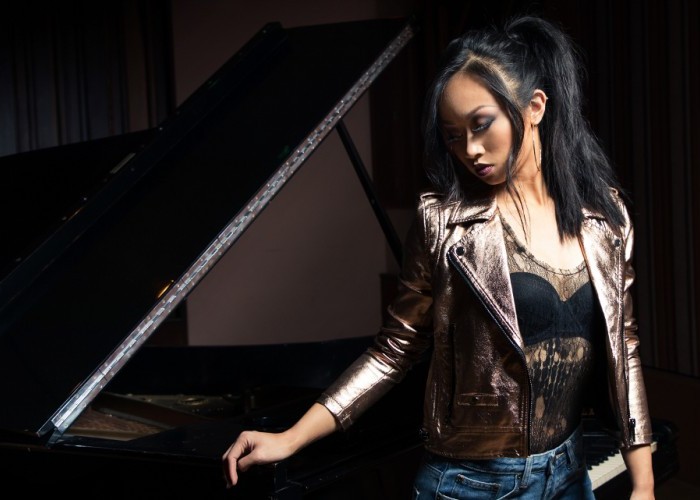
Connie Han’s debut, Crime Zone (Mack Avenue), is out now.
(Photo: Raj Naik)Pianist Connie Han’s debut, Crime Zone (Mack Avenue), might elicit a combination of praise and intrigue around her defiance of jazz—and classical—stereotypes. Rather than perceive the music’s history and sonic legacy as a shadow from which to run, Han is about bridging time periods and musical ideas—putting her at the center of everything, as opposed to being engulfed and overwhelmed by it.
The Los Angeles-based pianist recently spoke to DownBeat about music education, cyberpunk and her own musical values.
The following has been edited for length and clarity.
What should teachers of jazz and classical music do to better bridge and embrace the differences between the musics for new students?
I am grateful to my classical training for providing me the technical facility and the command of the [piano] to really tackle jazz as a complete art form. It’s important [for a teacher of jazz] to have a classical background, because that will only lift [their] musicianship and seriousness as an instrumentalist. [Conversely,] it’s so easy for younger classical musicians to just read music off the page and not fully absorb what is going on in harmonic functionality and melody, and why certain things are happening in the compositions.
I think if a classical student listens to jazz and understands a bit more about improvisation, that can really inform the perspective of learning music as music, rather than just notes on the page.
What about your playing was affected by the combination of learning classical repertoire and developing a comfort with jazz?
A common mistake that [classical converts to jazz] make, is that they’ll improvise with their hands, rather than their head, or their heart ... . It’s an intellectual exercise, as well as an exercise in communicating the human elements of music. It’s about conveying the human spirit and, honestly, it’s just like a primal instinct of who you are as a person and a human. It gets so deep in that abstract realm, you just can’t afford to think about the mechanics of playing your actual instrument. And that’s why I feel so blessed to have grown up with a classical background.
The name of your album, Crime Zone, is taken from a 1989 dystopian feature film that starred David Carradine. Can you explain the connection between jazz and the futuristic vibes of that film, Blade Runner and Ghost in the Shell?
I think jazz and cyberpunk are inherently rebellious. Jazz, historically, is rebellious in that the beatniks of the 1940s and ’50s—a.k.a. the original American hipsters—they used to worship the music of Charlie Parker and Dizzy Gillespie, because it was such a big deal when that bebop movement came up. That was the first iteration of intellectual jazz, and I feel like the beatniks tried to take that and be like, “This is intellectual. This is so nonconformist. Like, this is so edgy.” So, I think jazz in itself, in decades past, has always been about being rebellious and giving the middle finger to the status quo.
How do you balance the preservation of jazz’s legacy and compositional values with a desire to write unique contemporary music?
[W]hat’s inherent in jazz—even in straightahead music—is that you are essentially creating something from nothing. That’s kind of the beauty of jazz. [Y]ou’re playing the same stupid song over and over again, but you’re finding different ways of interpreting that same song.
I think there are infinite creative possibilities within the jazz tradition. Frankly, I wish I had more than one lifetime to explore all of it, and I think there are just so many different things you can say, because uniquely, you’re you. What you say is yours. So, I don’t really have a hard time balancing all that, because I think that jazz in itself is already individualistic and unique to the artist.
There’s a school of thought within the modern-jazz scene that traditional jazz is dead, and that people are just playing the same old lick over and over again, and that swinging is an archaic thing. I think swinging is about being in the moment—jazz has always been about being in the moment, and the tradition is like a lifestyle that you embrace.
Jazz education has made it so that traditional jazz has been pigeonholed into a museum art form, and you can hear that when people play it in that way. I want to make it so that when I play it, it sounds like it’s happening right now, rather than, “Oh, she’s playing the tradition,” because jazz is inherently about improvisation.
I guess I just want to make it stop sounding so like, “I went to jazz school.” DB
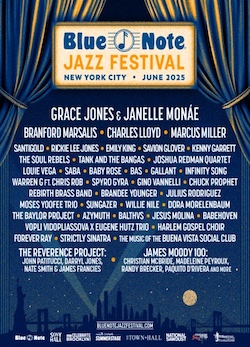
The Blue Note Jazz Festival New York kicks off May 27 with a James Moody 100th Birthday Celebration at Sony Hall.
Apr 8, 2025 1:23 PM
Blue Note Entertainment Group has unveiled the lineup for the 14th annual Blue Note Jazz Festival New York, featuring…
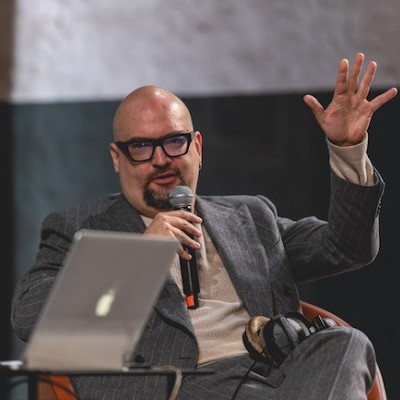
“I’m certainly influenced by Geri Allen,” said Iverson, during a live Blindfold Test at the 31st Umbria Jazz Winter festival.
Apr 15, 2025 11:44 AM
Between last Christmas and New Year’s Eve, Ethan Iverson performed as part of the 31st Umbria Jazz Winter festival in…
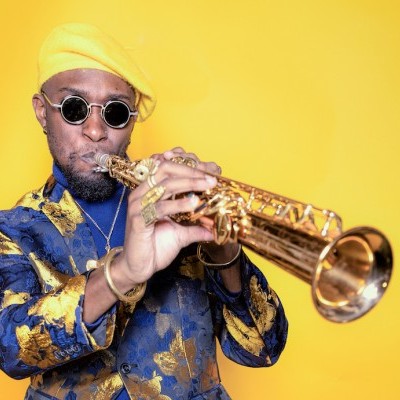
“At the end of the day, once you’ve run out of differences, we’re left with similarities,” Collier says. “Cultural differences are mitigated through 12 notes.”
Apr 15, 2025 11:55 AM
DownBeat has a long association with the Midwest Clinic International Band and Orchestra Conference, the premiere…
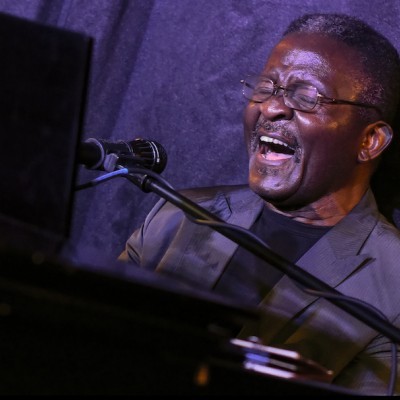
“It kind of slows down, but it’s still kind of productive in a way, because you have something that you can be inspired by,” Andy Bey said on a 2019 episode of NPR Jazz Night in America, when he was 80. “The music is always inspiring.”
Apr 29, 2025 11:53 AM
Singer Andy Bey, who illuminated the jazz scene for five decades with a four-octave range that encompassed a bellowing…
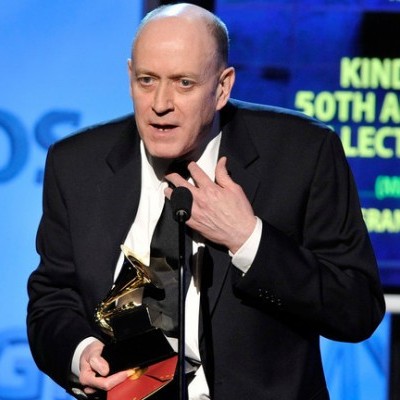
Davis was a two-time Grammy winner for liner notes.
Apr 22, 2025 11:50 AM
Francis Davis, an august jazz and cultural critic who won both awards and esteem in print, film and radio, died April…